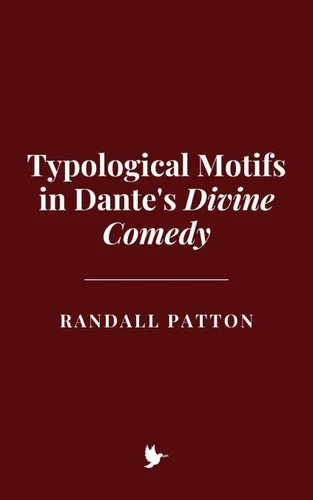Typological Motifs in Dante's Divine Comedy
Par :Formats :
Disponible dans votre compte client Decitre ou Furet du Nord dès validation de votre commande. Le format ePub est :
- Compatible avec une lecture sur My Vivlio (smartphone, tablette, ordinateur)
- Compatible avec une lecture sur liseuses Vivlio
- Pour les liseuses autres que Vivlio, vous devez utiliser le logiciel Adobe Digital Edition. Non compatible avec la lecture sur les liseuses Kindle, Remarkable et Sony
 , qui est-ce ?
, qui est-ce ?Notre partenaire de plateforme de lecture numérique où vous retrouverez l'ensemble de vos ebooks gratuitement
Pour en savoir plus sur nos ebooks, consultez notre aide en ligne ici
- FormatePub
- ISBN8230311669
- EAN9798230311669
- Date de parution17/02/2025
- Protection num.pas de protection
- Infos supplémentairesepub
- ÉditeurIndependently Published
Résumé
Dante Alighieri's Divine Comedy, written between 1308 and 1321, stands as one of the most monumental works in Western literature. To truly understand the depth of the Divine Comedy is to enter into the complex world of medieval thought, where allegory, theology, philosophy, and classical tradition converge to form a multifaceted narrative that explores the journey of the soul through Hell, Purgatory, and Heaven.
At the heart of Dante's work lies a profound use of typology, which is not merely a literary device but a central framework through which the entire structure of the poem unfolds. Typology, in medieval Christian thought, is the idea that events, persons, or institutions in the Old Testament prefigure or foreshadow their fulfillment in the New Testament. These prefigurations are seen as a divine plan that stretches across both history and scripture, offering a profound sense of continuity and purpose to the unfolding of the world.
At the heart of Dante's work lies a profound use of typology, which is not merely a literary device but a central framework through which the entire structure of the poem unfolds. Typology, in medieval Christian thought, is the idea that events, persons, or institutions in the Old Testament prefigure or foreshadow their fulfillment in the New Testament. These prefigurations are seen as a divine plan that stretches across both history and scripture, offering a profound sense of continuity and purpose to the unfolding of the world.
Dante Alighieri's Divine Comedy, written between 1308 and 1321, stands as one of the most monumental works in Western literature. To truly understand the depth of the Divine Comedy is to enter into the complex world of medieval thought, where allegory, theology, philosophy, and classical tradition converge to form a multifaceted narrative that explores the journey of the soul through Hell, Purgatory, and Heaven.
At the heart of Dante's work lies a profound use of typology, which is not merely a literary device but a central framework through which the entire structure of the poem unfolds. Typology, in medieval Christian thought, is the idea that events, persons, or institutions in the Old Testament prefigure or foreshadow their fulfillment in the New Testament. These prefigurations are seen as a divine plan that stretches across both history and scripture, offering a profound sense of continuity and purpose to the unfolding of the world.
At the heart of Dante's work lies a profound use of typology, which is not merely a literary device but a central framework through which the entire structure of the poem unfolds. Typology, in medieval Christian thought, is the idea that events, persons, or institutions in the Old Testament prefigure or foreshadow their fulfillment in the New Testament. These prefigurations are seen as a divine plan that stretches across both history and scripture, offering a profound sense of continuity and purpose to the unfolding of the world.
















